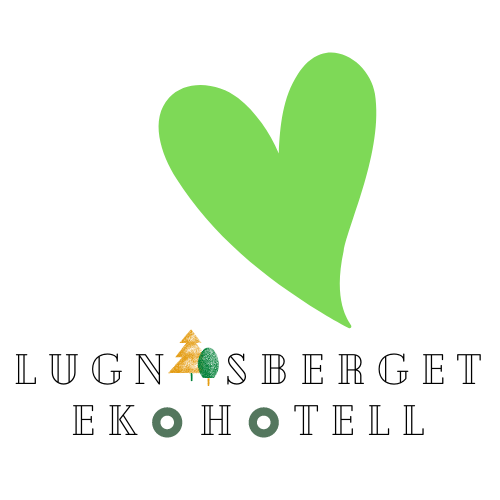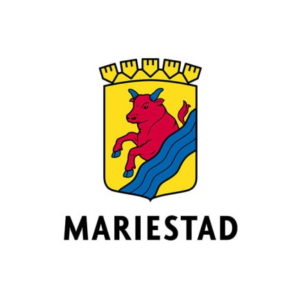Hi...
We the owners and managers of Lugnåsberget Ekohotell are Pia Åkesson and Jesper Persson. We have been in this district since 1988 and live circa 3 km from the Ekohotell in a smallholding with horses, sheep, goats, hens, dogs and cats. We cultivate hay for our animals and vegetables and fruit for ourselves. In the forest we collect mushrooms and berries.
Pia comes from Malmö/Lund and Jesper from Stockholm/Gävle and we met at a college in Sveg when we were on a course in ancient handicraft techniques. We each had a copy of John Seymour’s book “Self-Sufficiency” and we have lived in the spirit of the book ever since.
In 2010 we bought the property and began the conversion from a private dwelling to a hostel. Our three grown-up children helped us with our building project in their spare time. The first guests checked-in in July 2011. In 2020 we changed our emphasis to the Ekohotell to more clearly focus on our environmental work.
When we are not at the Ekohotell, we work on our smallholding with animals, handicrafts and carpentry. We are also engaged in the Qvarnstensgruvan Museum of Work, here on the mountain, where we work both voluntarily and as paid guides. We love to spend time with our grandchildren who are in Tjörn and Tiveden.
VISION AND GOAL
ENVIRONMENTAL WORK
We have always economised with resources and taken advantage of what nature provides. We cultivate fodder and vegetables for ourselves and our animals. We try to keep down our footprint and increase our handprint both in our private life and our business. We began as a hostel in 2012 and from the very start we wanted to be an environmentally friendly place to live and be.
In our case that meant that the Lugnåsberg Ekohotell should feature well-thought-out details, recycling and use of the resources that already exist. We want to give old things a new lease of life instead of discarding them and let the history of the house be seen instead of being hidden.
We shop locally as much as possible and recommend other businesses in our area. We try to make the countryside around us accessible by producing maps with little suggestions on them. We also have ready-made packages with sustainable experiences.
Examples of what we have already done:
- Solar cells and pellet stoves for heating and electricity.
- Our own recycling plant where we and our guests can sort rubbish
- Coffee for all our guests with recycling
- Biological waste treatment (Bioclere)
- Grazing animals that maintain the property
- 100% environmentally certified products for washing and cleaning
- Ecologically and locally produced food
- Reduced-flow taps and flushing
- Energy-saving windows and natural materials in the rooms
- Composting
- Nesting boxes
- Reusing building materials after renovations
- Mixing newly produced furniture with second hand
CERTIFICATION
The Ekohotell has been environmentally certificated with Green Key since 2012. We want our environmental work to be visible and objectively assessed on the basis of established criteria. By being certified we get a good oversight of what we do and our environmental work develops. Read more about certification.
Of course we have made STF’s Sustainability Promise and in 2008 we proudly received silver in the STF Pillow of the Year category, Sustainability. We are also a part of Turistrådet Västsveriges Hållbarhetskliv (the Tourist Board of West Sweden’s Sustainability Strides).
AWARDS
LEADER-PROJEKT 2019

We had a Leader project in 2019 called HÅLLBAR TURISM PÅ LUGNÅSBERGET (Sustainable Tourism on Lugnås Mountain). Since we started we have had a clear sustainability profile. The aim of the project was that we would attract a new target group. Families with children could take part in fun and informative activities that we created from the global sustainability goals. To be able to take groups we increased the seating capacity of the dining room by extending it.



